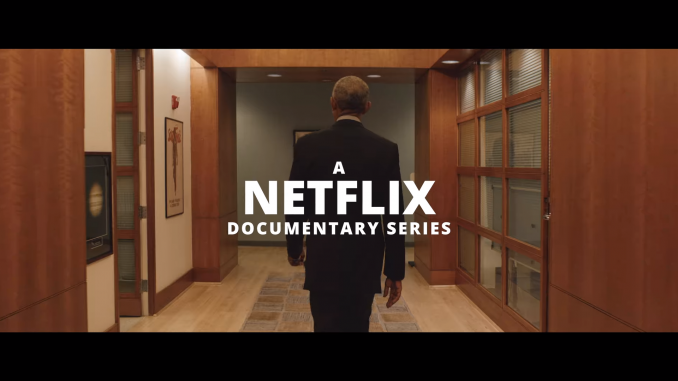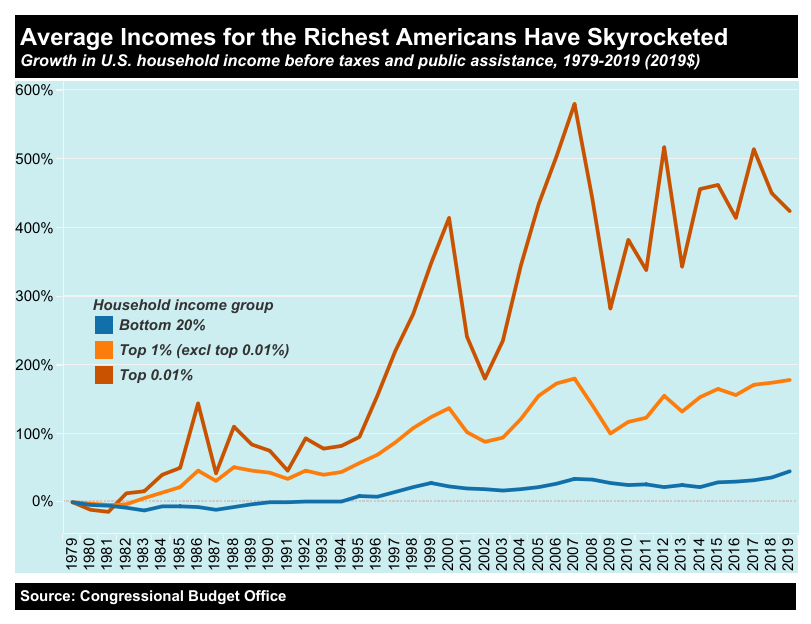
Former President Barack Obama stars in a recent 4-part Netflix miniseries called Working: What We Do All Day. He tells us in the first episode that it was inspired by the oral history Working, by Studs Terkel, first published in 1974, in which Terkel interviewed dozens of workers about the jobs they did and how they felt about them. While the Netflix series does talk to workers about their lives and work, it doesn’t focus nearly as much on the daily grind of work and how it affects workers themselves, leaving the vast majority of workers in the U.S. still invisible to the viewers.
In its best moment, the series shows a meeting of home health care workers (all Black) and their supervisor (also Black) in Mississippi. The workers give management an earful about the uncertain scope of their job, costs that they are never reimbursed for, low pay, and the stresses of trying to make ends meet while being asked to provide compassionate care for other humans. The supervisor desperately attempts to manage and maintain this workforce of 100 underpaid, overworked, stressed out employees. She says she’ll do the best she can do, but she has no power over their pay, work conditions, or the larger economy that shapes those things. Her daughter talks of how stressful her job is, because she has to “deal with the workers.” This episode shows the tension and pressure on workers created by an economy that values profit over all else.
Beyond that episode and a few other moments with workers at a fancy New York hotel, and a quick mention of the potential dangers of artificial intelligence, the series falls short on giving us a real understanding of work and workers today.
The series instead idealizes the “American dream,” and compares the post-World War II period with today, as if things were great for workers in the 1950s! Obama is a major part of the show, having smiling conversations with workers and bosses alike. He acts like he really believes that if bosses simply saw their workers, things might be better. And the series as it goes on becomes more of a criticism of Obama’s Republican rivals than a serious attempt to understand what tens of millions suffer through daily.
Obama himself calls attention to the main problem plaguing these workers and his entire story. “Let’s be blunt” he said. “There’s always someone at the top of the ladder and someone at the bottom. That’s especially true with capitalism, and we shouldn’t pretend otherwise.” He’s right!
Despite knowing this, as President Obama did little to help workers improve their financial situations or help them gain the power necessary to do so on their own. He did nothing to stop the exploitation of workers by the One Percent. While he was President, the gap between rich and poor continued to grow! He made only halfhearted attempts to support even minimal union protections like the Employee Free Choice Act or the PRO Act.
So why now, if he didn’t address these problems head on as President, is Obama hosting this series?
The American ruling class today is clearly concerned by the rising tide of worker anger and worker organizing in the nation. They sense that the stability that they work so hard to cultivate is threatened by the huge gap between rich and poor and the dashed dreams of tens of millions. They know that a working class in motion could challenge their rule and potentially upend their system. Their solutions put forward in this series are a few small reforms to the system, rather than systemic changes, and the hope that bosses will start to think more about their workers. The “Working” series is the Democratic Party and the corporate media’s attempt to act like they care and like they’ll do something to fix the problem. But they don’t and they won’t. Let’s not let Obama’s charisma get in the way of reality. The Democrats don’t care about working people any more than Republicans, they just put a nicer face on that reality. The sooner we’re clear on that, the sooner we can push both of them out of the way and begin to build the society working people deserve.


